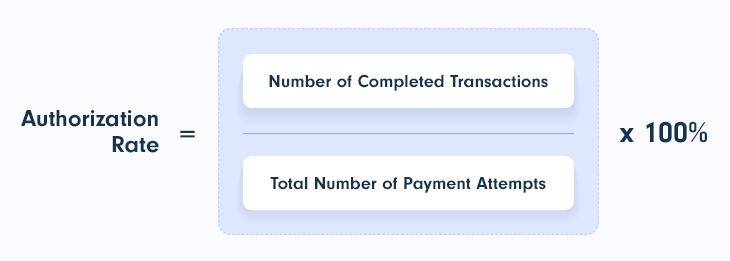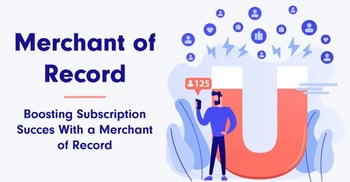Global Vs. Domestic Authorization Rates

-
Authorization rates (or approval rates) represent the percentage of successful credit card payment attempts. A high rate means more sales and better customer experiences. A low rate means lost revenue and customer churn.
How to Calculate Authorization Rates
Authorization Rate = (Approved Transactions ÷ Total Transaction Attempts) × 100
Why They’re Critical for SaaS Growth
SaaS businesses looking to scale internationally must overcome one critical challenge: payment authorization rates. Without optimized approval processes, companies risk losing revenue and frustrating customers—especially when expanding into new markets.
In this guide, we’ll explore how to increase your authorization rates and reduce friction in global payments, with a special focus on how PayPro Global helps SaaS, software, and video game companies achieve better outcomes across the board.
What Are Authorization Rates and Why Do They Matter?
Authorization rates (or approval rates) represent the percentage of successful credit card payment attempts. A high rate means more sales and better customer experiences. A low rate means lost revenue and customer churn.
How to Calculate Authorization Rates
To determine your authorization rates, you need to divide the count of completed transactions by the total number of payments or attempts.

Why They’re Critical for SaaS Growth
Failed transactions lead to lost sales and customer frustration.
33% of U.S. shoppers say they’d switch products after just one failed payment.
A 5% improvement in authorization rates for a company making $10M annually means an extra $500,000 in revenue.
Global vs. Domestic Authorization Rates: What's the Difference?
Selling locally and internationally involves very different payment processing dynamics. Here’s how they compare:
|
Feature |
Domestic Transactions |
International Transactions |
|
Currency Conversion |
Not required |
Required; introduces exchange rate risks |
|
Regulatory Compliance |
Single jurisdiction |
Multiple, varying legal frameworks |
|
Fraud Risk |
Lower |
Higher; subject to additional fraud checks |
|
Authorization Complexity |
Simpler |
Complex; more points of failure |
Key Insight:
Global transactions fail more often due to stricter regulations, fraud risks, and mismatched processing networks. Optimizing cross-border payment processing is essential for global SaaS expansion.
What is Local Acquiring?
Local acquiring refers to processing payments through an acquiring bank in the same country as the customer. This mimics a domestic transaction, which improves approval rates and customer satisfaction.
4 Local Acquiring Advantages
Boosted Authorization Rates
Having a better understanding of local markets and consumer payment preferences, including currency and payment methods, local acquirers can keep your approval rates high.
Furthermore, their well-established relationships with local issuers can expedite the payment authorization process, leading to quicker and smoother payment approvals.
Ensure Cost-Efficiency
As we’ve mentioned before, international payments are often subject to increased processing fees, including foreign exchange costs.
By virtually transforming international transactions into domestic ones, you are significantly reducing those operational costs without sacrificing a positive customer experience.
As a bonus, you are still allowing your customers to pay in their preferred currency, which is, of course, a payment best practice.
Unfortunately, your SaaS business is still subject to foreign exchange fluctuations due to locally acquired transactions. After all, the funds you gain will be settled in your shopper’s currencies and not yours. But you get to decide how and when you choose to convert that revenue.
Achieve Positive Customer Experiences
Processing international payments often leads to additional fees for both the SaaS business and its shoppers. So, when partnering with a local acquirer and treating a cross-border card transaction as a domestic one, your shoppers will most likely thank you.
Additionally, trustworthy local acquirers offer merchants a wide portfolio of payment methods, a feature that significantly contributes to offering positive purchasing experiences.
Fast Market Expansion
One of the biggest issues of international payment processing and a real blocker for fast market expansion is ensuring legal compliance in the regions you wish to sell.
Each territory has distinct compliance laws and consumer rights regulations that need to be respected. Not complying with local legal frameworks can lead to significant negative consequences that can have long-term effects on your SaaS business.
In the absence of a trustworthy local acquirer, the responsibility for managing compliance would fall to each individual business, demanding a significant allocation of various resources.
A partnership with a reliable financial institution, on the other hand, would expedite your business’s market expansion while always ensuring full compliance.
4 Local Acquiring Cons
A partnership with a local acquirer might seem like the perfect fix for international payment authorization and revenue growth. But is it really? Well, not exactly.
Difficulty in Handling Multiple Acquirers
Eager to capitalize on the current success of the SaaS industry, you might wish to expand into multiple territories.
This, of course, would require setting up partnerships with local acquirers in every country in which your SaaS company operates.
Plus, it's relevant to mention that not every local acquirer will offer the payment method mix you need, so you might need to use multiple providers in a country or region.
Easier said than done.
Each acquirer might have its own set of requirements, fees, and service-level agreements, and all of these issues are complicated to manage and replicate for each of the countries into which you wish to expand.
Currency Conversion
This is just as big of an issue for the shopper as it is for the SaaS business. Unfortunately, a local acquirer does only half the job, and sadly, it cannot exempt you entirely from currency exchange fees.
If you are a US business selling into the EU, you will receive your funds in euros. Converting your revenue to US dollars will involve costs related to currency exchange fluctuations, which add up to business expenses and can affect your bottom line.
Time-Consuming Setup Processes
Effective local acquiring involves, in many cases, establishing a legal entity in each country you wish to sell.
This is a very long and complex process that requires you to understand and navigate different legal structures, resulting in an increased use of resources that could be better put to use in developing new products or innovating existing ones.
Additionally, it’s not just setting up the local acquiring network that takes effort. Maintenance and constant monitoring are also required to ensure flawless operations.
Now, imagine selling in 60 different countries. The operational workload is simply unimaginable.
Lack of Additional Services
While local acquirers play a central role in optimizing authorization rates, a partnership with these providers would not cover all your bases for achieving successful market growth.
In other words, you might be lacking essential payment tools that could have a strong impact on your business’s revenue.
Fraud prevention and detection tools, reporting and analytics, and a wide range of local payment methods all contribute to the health of your business and are required to ensure a fast market expansion.
Looking at the cons mentioned above, we should address the obvious question:
How can a SaaS company expand into new territories fast?
The answer is with the help of a Merchant of Record.
And here is how.
eCommerce Partner
Thrive with the industry's most innovative all-in-one SaaS & Digital Goods solution. From high-performing payment and analytics tools to complete tax management, as well as subscription & billing handling, PayPro Global is ready to scale your SaaS.
Sell your SaaS globally with PayPro Global!
How the Merchant of Record (MOR) Model Solves Global Expansion Challenges
A Merchant of Record (MOR) acts as a reseller that handles global payments, taxes, and compliance for your SaaS business. Instead of managing dozens of acquirers, you partner with one MOR.
Why SaaS and Software Companies Need an MOR?
No Need for Local Entities: The MOR already has them.
Built-in Local Acquiring: Enjoy the benefits without the complexity, as well as provide access to customers to local payment methods.
Centralized Compliance: Stay aligned with global tax, PCI-DSS, GDPR, and financial regulations.
Optimized Payment Stacks: Includes fraud prevention in SaaS, smart routing, and tokenization.
Real-World Challenges SaaS Companies Face with Authorization Rates
Here are some common issues SaaS, software, and video game businesses encounter:
- Game developers selling in Asia experience a 20–30% drop in approvals due to lack of local payment support.
- SaaS platforms expanding into Latin America see high failure rates with U.S. acquirers because local banks reject cross-border attempts.
- Subscription services face churn from failed renewals due to expired cards or outdated credentials.
Solution? A payment partner like PayPro Global that deeply understands these regional nuances and applies smart payment orchestration to solve them.
How PayPro Global Helps With Authorization Rate Optimization
PayPro Global is a trusted Merchant of Record that delivers an optimized payment infrastructure for SaaS, software, and digital goods companies.
1. Smart Routing
Routes transactions to the acquiring bank with the highest approval probability based on geography, transaction history, and fraud indicators.
Result: Reduced declines, especially for high-risk or complex transactions.
2: Fraud Detection and Prevention
Uses machine learning to detect suspicious patterns while minimizing false declines.
Result: Increased approvals for legitimate customers.
3. Network Tokenization
Securely replaces card data with network tokens that stay updated even when cards expire or are reissued.
Result: Fewer failed renewals and higher revenue recovery.
4. Localized Payment Methods
Supports 70+ local and alternative local payment methods, including wallets, bank transfers, and BNPL solutions.
Result: Higher conversions in markets like Asia, Europe, and Latin America.
5. Optimized Checkout Experience
Minimal friction with smart form autofill.
Adaptive field requests based on region.
Fast, mobile-friendly UX.
Result: Lower cart abandonment, increased transaction success.
Comparative Look: PayPro Global vs. Other Payment Providers
|
Feature |
Traditional PSPs |
Local Acquirers |
PayPro Global (MOR) |
|
Local Entity Required |
Yes |
Yes |
No |
|
Local Acquiring Access |
Limited |
Yes |
Yes |
|
Compliance & Tax Management |
Manual |
Limited |
Full Coverage |
|
Fraud Protection Suite |
Basic |
Varies |
Advanced AI-Based |
|
Subscription Management |
Add-on |
Rare |
Built-in |
|
Checkout Optimization |
Manual |
No |
Fully Customized |
CHeck out complete comparisons between the Merchant of Record and other models here.
eCommerce Partner
Thrive with the industry's most innovative all-in-one SaaS & Digital Goods solution. From high-performing payment and analytics tools to complete tax management, as well as subscription & billing handling, PayPro Global is ready to scale your SaaS.
Sell your SaaS globally with PayPro Global!
Final Thoughts
Global expansion is full of promise—but only if your payment infrastructure supports it. For SaaS and digital businesses, every failed transaction is a lost customer and a missed opportunity.
A reliable Merchant of Record like PayPro Global gives you the tools, network, and compliance coverage to optimize your global payment flows and unlock higher revenue.
PayPro Global handles everything—from local acquiring and fraud prevention to smart routing chargeback management, subscription billing and tax compliance. Focus on growing your business while we take care of your payments.
Book a call today and discover how to scale smarter with PayPro Global.
FAQs
Why do my international payments fail more than domestic ones?
International payments are more complex, involving different currencies, stricter fraud checks, and varying regulations. Foreign banks often decline these cross-border transactions as a precaution, leading to lower approval rates than domestic payments.
What is local acquiring and how does it help?
Local acquiring is the process of using a bank in the customer's own country to process their payment. This makes the transaction appear domestic, which is viewed as less risky by banks, leading to significantly higher authorization rates.
How does network tokenization help with subscription renewals?
Network tokenization securely replaces card data with a token that automatically updates when a card expires. This prevents recurring subscription payments from failing, reducing customer churn and recovering revenue.
Ioana Grigorescu
Ioana Grigorescu is PayPro Global's Content Manager, focused on creating strategic writing pieces for SaaS, B2B, and technology companies. With a background that combines Languages and Translation Studies with Political Sciences, she's skilled in analyzing, creating, and communicating impactful content. She excels at developing content strategies, producing diverse marketing materials, and ensuring content effectiveness. Beyond her work, she enjoys exploring design with Figma.
-
1.Explore PayPro Global's Solutions: See how our platform can help you streamline your payment processing and boost revenue.
-
2.Get a Free Consultation: Discuss your specific needs with our experts and discover how we can tailor a solution for you.
-
3.Download our Free Resources: Access valuable guides, checklists, and templates to optimize your online sales.
-
4.Become a Partner: Expand your business by offering PayPro Global's solutions to your clients.
- Improving authorization rates increases revenue and customer happiness in international markets, which is crucial for SaaS growth.
- By optimizing payments and compliance, local acquisition and a Merchant of Record (MOR) model such as PayPro Global make international expansion easier.
- PayPro Global reduces transaction failures by increasing authorization rates through localized payment options, fraud prevention, and intelligent routing.
Get the latest news



